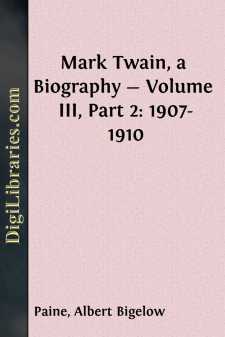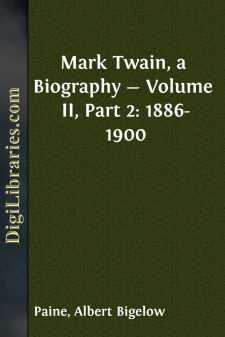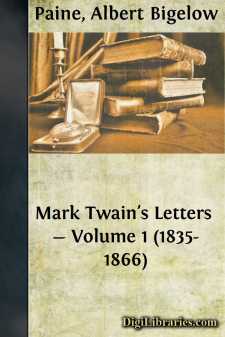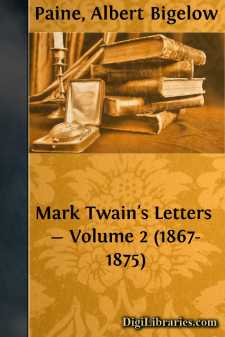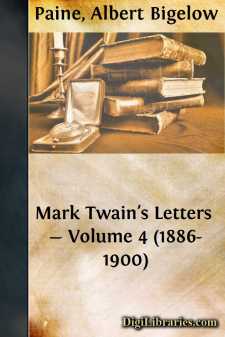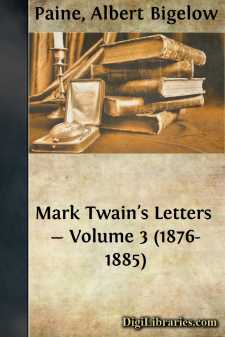Categories
- Antiques & Collectibles 13
- Architecture 36
- Art 48
- Bibles 22
- Biography & Autobiography 813
- Body, Mind & Spirit 142
- Business & Economics 28
- Children's Books 12
- Children's Fiction 9
- Computers 4
- Cooking 94
- Crafts & Hobbies 4
- Drama 346
- Education 46
- Family & Relationships 57
- Fiction 11828
- Games 19
- Gardening 17
- Health & Fitness 34
- History 1377
- House & Home 1
- Humor 147
- Juvenile Fiction 1873
- Juvenile Nonfiction 202
- Language Arts & Disciplines 88
- Law 16
- Literary Collections 686
- Literary Criticism 179
- Mathematics 13
- Medical 41
- Music 40
- Nature 179
- Non-Classifiable 1768
- Performing Arts 7
- Periodicals 1453
- Philosophy 64
- Photography 2
- Poetry 896
- Political Science 203
- Psychology 42
- Reference 154
- Religion 513
- Science 126
- Self-Help 84
- Social Science 81
- Sports & Recreation 34
- Study Aids 3
- Technology & Engineering 59
- Transportation 23
- Travel 463
- True Crime 29
Sort by:
by:
Mark Twain
INTRODUCTION. I intend that this autobiography shall become a model for all future autobiographies when it is published, after my death, and I also intend that it shall be read and admired a good many centuries because of its form and method—a form and method whereby the past and the present are constantly brought face to face, resulting in contrasts which newly fire up the interest all along, like...
more...
HONORS FROM OXFORD Clemens made a brief trip to Bermuda during the winter, taking Twichell along; their first return to the island since the trip when they had promised to come back so soon-nearly thirty years before. They had been comparatively young men then. They were old now, but they found the green island as fresh and full of bloom as ever. They did not find their old landlady; they could not...
more...
It was in the little office of James T. Fields, over the bookstore of Ticknor & Fields, at 124 Tremont Street, Boston, that I first met my friend of now forty-four years, Samuel L. Clemens. Mr. Fields was then the editor of The Atlantic Monthly, and I was his proud and glad assistant, with a pretty free hand as to manuscripts, and an unmanacled command of the book-notices at the end of the...
more...
The Browning readings must have begun about this time. Just what kindled Mark Twain's interest in the poetry of Robert Browning is not remembered, but very likely his earlier associations with the poet had something to do with it. Whatever the beginning, we find him, during the winter of 1886 and 1887, studiously, even violently, interested in Browning's verses, entertaining a sort of club or...
more...
MARK TWAIN A BIOGRAPHY I ANCESTORS On page 492 of the old volume of Suetonius, which Mark Twain read until his very last day, there is a reference to one Flavius Clemens, a man of wide repute "for his want of energy," and in a marginal note he has written: "I guess this is where our line starts." It was like him to write that. It spoke in his whimsical fashion the attitude of humility,...
more...
THE LECTURER It was not easy to take up the daily struggle again, but it was necessary.—[Clemens once declared he had been so blue at this period that one morning he put a loaded pistol to his head, but found he lacked courage to pull the trigger.]—Out of the ruck of possibilities (his brain always thronged with plans) he constructed three or four resolves. The chief of these was the trip around...
more...
MARK TWAIN—A BIOGRAPHICAL SUMMARY SAMUEL LANGHORNE CLEMENS, for nearly half a century known and celebrated as "Mark Twain," was born in Florida, Missouri, on November 30, 1835. He was one of the foremost American philosophers of his day; he was the world's most famous humorist of any day. During the later years of his life he ranked not only as America's chief man of letters, but...
more...
To Bret Harte, in San Francisco: WESTMINSTER HOTEL, May 1, 1867. DEAR BRET,—I take my pen in hand to inform you that I am well and hope these few lines will find you enjoying the same God's blessing. The book is out, and is handsome. It is full of damnable errors of grammar and deadly inconsistencies of spelling in the Frog sketch because I was away and did not read the proofs; but be a friend...
more...
To W. D. Howells; in Boston: Jan. 3, '86. MY DEAR HOWELLS,—The date set for the Prince and Pauper play is ten days hence—Jan. 13. I hope you and Pilla can take a train that arrives here during the day; the one that leaves Boston toward the end of the afternoon would be a trifle late; the performance would have already begun when you reached the house. I'm out of the woods. On the last day...
more...
The Monday Evening Club of Hartford was an association of most ofthe literary talent of that city, and it included a number of verydistinguished members. The writers, the editors, the lawyers, andthe ministers of the gospel who composed it were more often than notmen of national or international distinction. There was but onepaper at each meeting, and it was likely to be a paper that wouldlater find...
more...



